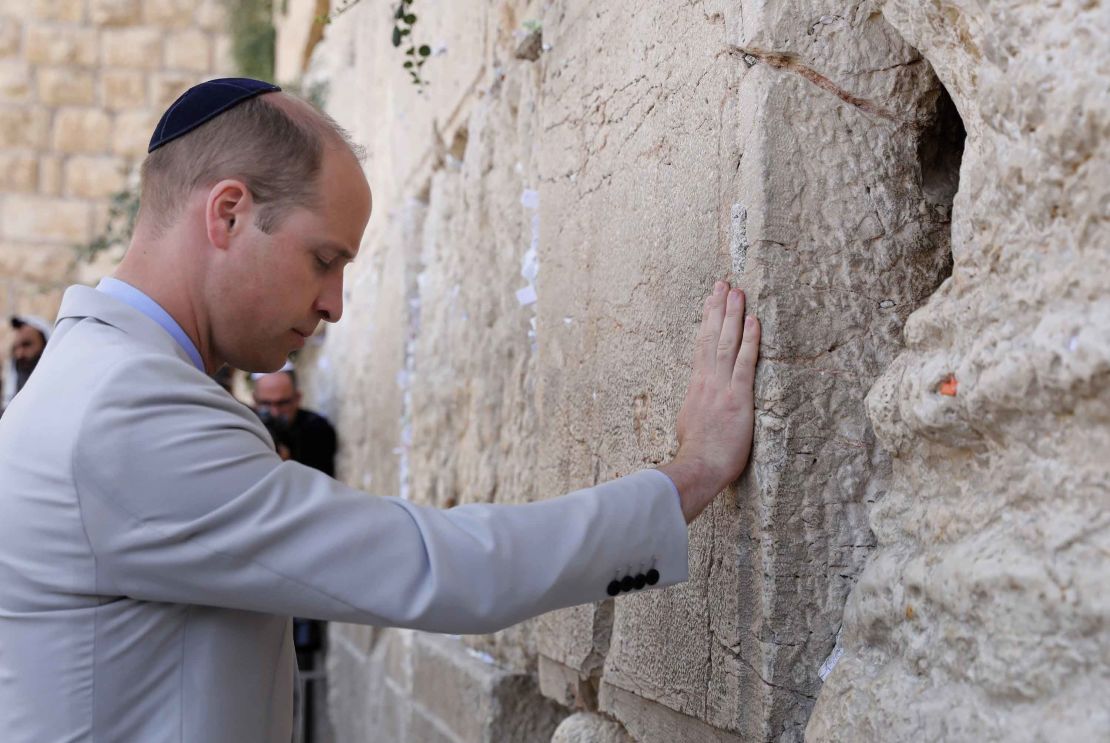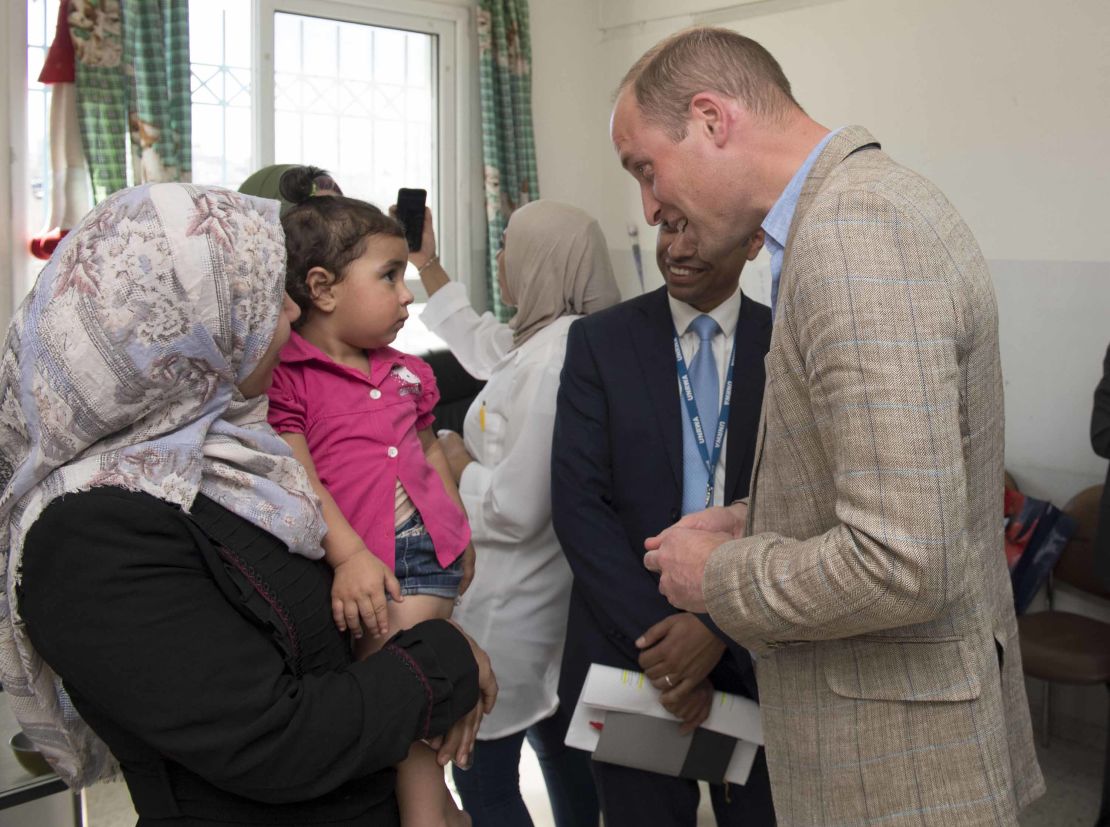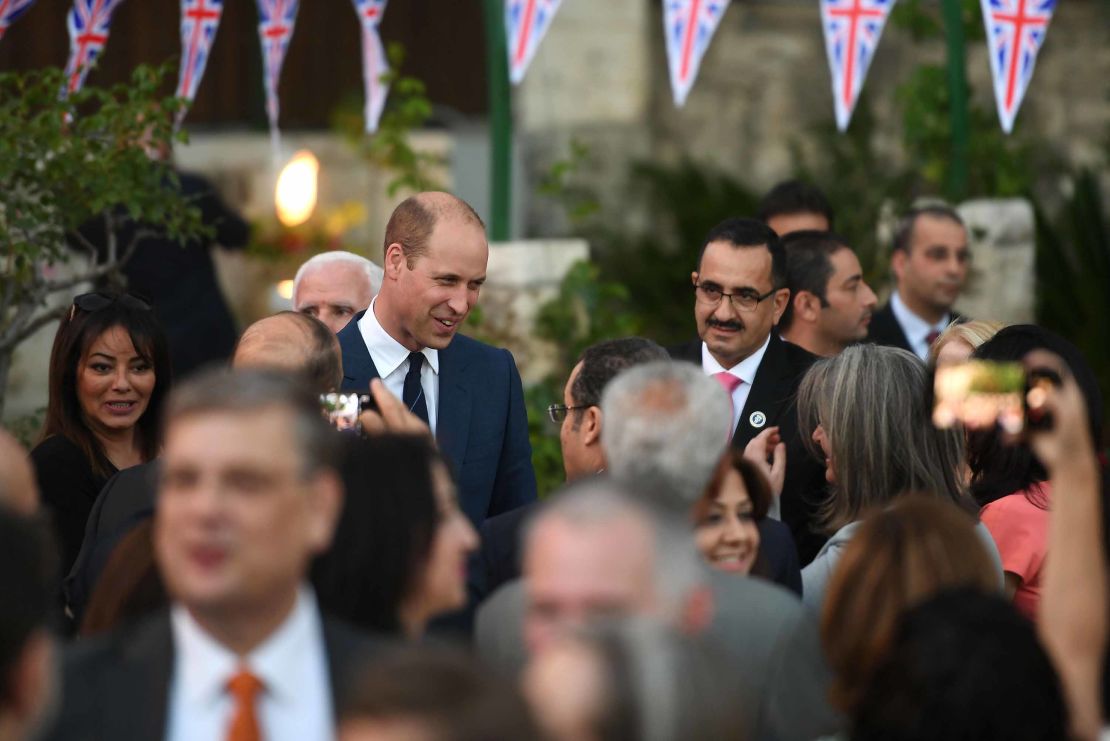Landmark moments in royal careers are defined by history, and we may well look back at the Duke of Cambridge’s official visit to Israel and the West Bank as one such moment. It wasn’t just that it was a first for a British royal or that the political and religious sensitivities of the region are so acute. It was the way that he handled himself there, and how that will inform the way he carries his royal role forward.
When Israel’s ceremonial President, Reuven Rivlin, welcomed the duke, he asked William to send a “message of peace to Palestinian Authority President Mahmoud Abbas. And tell him it is about time, it is about time that we have to find together the way to build confidence.” That struck royal and Middle Eastern watchers alike as an unusually political statement to make to a deliberately apolitical figure.

The next day, when Prince William was received in Ramallah by Abbas, the stakes were raised further. “On this occasion, I would like to refer to two important issues,” Abbas declared. “First, we are serious about reaching peace with Israel, where the two countries live side by side with security and stability on the borders of June 4 [1967].”
The duke responded much as he did the day before, saying he hoped for a “lasting peace in the region.” Interestingly, I understand Prince William didn’t feel either of the presidents acted inappropriately, with their break in protocol. In fact, it would have felt more inappropriate to ignore the politics in such a highly charged region.

William was intimately involved in the itinerary of the tour and for him it was about getting the balance right. He was there to listen, to learn and to highlight the issues he felt were important, while never articulating nor endorsing a political view.
The most remarkable moment of the visit was a speech the duke gave at the residence of the British Consul General in Jerusalem, at a reception for Palestinian and Jerusalem community representatives on Wednesday. “My message tonight is that you have not been forgotten,” he said. “It has been a very powerful experience to meet you and other Palestinians living in the West Bank, and to hear your stories. I hope that through my being here and understanding the challenges you face, the links of friendship and mutual respect between the Palestinian and British people will grow stronger.”

That part of the speech was added at the last minute, which doesn’t usually happen with long-planned royal engagements – least of all when the subject is so sensitive and profound. I wasn’t at the reception but I am told by several people who were there, that the guests were particularly struck by his comments, including a group from Gaza who the duke went out of his way to spend time with.
“He addressed us as Palestinians in the consulate of Her Majesty in East Jerusalem,” said Maged Abu Ramadan, one of the guests who had traveled from Gaza. “It will be very impactful on ears, hearts and minds. The misery in Gaza is a feeling of being abandoned, a feeling of being orphans. To have a member of the royal family to take the time and make the effort to remember us and tell us ‘you are not left alone’ is very important.”
For William, to be so spontaneous and on point was a coming of age in his royal career. His grandmother, Queen Elizabeth II, is revered the world over for the way she has stayed out of politics during her long reign. His father, The Prince of Wales, has occasionally expressed himself on arguably political issues, provoking a degree of backlash.
The Duke of Cambridge, who will succeed both of them, may have just given us the first indication of the type of reign we can expect from him. Based on what we saw in the Middle East, he will be a king who won’t shy away from politics or the issues involved but won’t take sides either. It’s the monarchy of balance.

